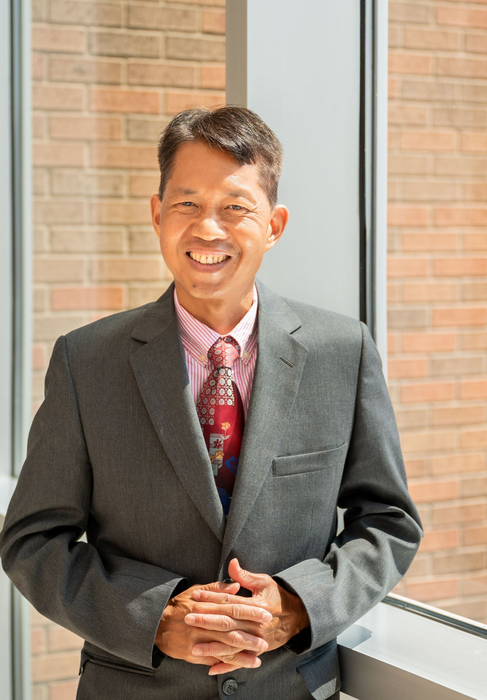Wei Chen, professor of physics at The University of Texas at Arlington, is co-author of an article that has received a prestigious best paper award from Bioactive Materials, an international, peer-reviewed research publication.

Credit: UT Arlington
Wei Chen, professor of physics at The University of Texas at Arlington, is co-author of an article that has received a prestigious best paper award from Bioactive Materials, an international, peer-reviewed research publication.
His study, titled “Nitrogen-doped fluorescence carbon dots as multi-mechanism detection for iodide and curcumin in biological and food samples,” is about the development of nitrogen-doped fluorescent carbon dots as a detection mechanism for iodine and curcumin in food.
The Bioactive Materials best paper award is fully merit-based and is given to researchers who publish articles that make significant contributions to the field. The paper was published in June 2021 and has 114 citations to date. It is cited as a “hot paper” in the science community, meaning it receives citations soon after publication relative to other papers of the same field and age.
Chen is corresponding author of the paper. UTA co-authors include research associate Brian Bui, visiting scientist Lingyun Wang, and graduate student Christina Xing, along with scientists from three universities in China.
The team explored the use of carbon dots for food safety monitoring. Carbon dots are nanoscale carbon particles that show promising applications in a variety of fields including biomedicine, optics and energy.
The iodine anion is one of the most important ions in living organisms, particularly when it comes to the synthesis of thyroid hormones. Curcumin is a compound commonly used as a spice and food additive, as well as in cosmetics. However, excess curcumin can cause DNA inactivation, lead to a decrease in levels of intracellular adenosine triphosphate—the major energy currency of cells— and even trigger tissue necrosis. Quantitative detection of iodine and curcumin is thus of great significance in the fields of food and life sciences, Chen said.
“In this study, we developed nitrogen-doped fluorescent carbon dots (NCDs) as a multi-mechanism detection for iodide and curcumin in actual complex biological and food samples,” Chen said.
The team was able to successfully quantify trace amounts of iodine in water and urine samples. They were also able to use the NCDs as a sensor for curcumin detection.
“These results indicate that carbon dots are potential sensing materials for iodine and curcumin detection for the good of our health,” Chen said.
Chen has been involved in cutting-edge nanotechnology research for more than two decades and is an internationally renowned expert in nanomedicine and cancer nanotechnology. He was elected a fellow of the Royal Society of Chemistry in 2021 and was named a fellow of the National Academy of Inventors in 2022.
- Written by Greg Pederson, College of Science




